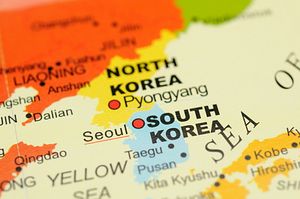Given the rapidity of economic growth and the speed of political and social changes in South Korea since the republic’s founding, it should come as no surprise that generational differences are sometimes significant. Recent scholarship focuses on some of these differences, taking particular note of the “new” national identity taking shape among the 20s age cohort, sometimes referred to as the yishipdae. Survey data, released in a report earlier this week by the Seoul-based Asan Institute for Policy Studies, points to the crystallization of a new South Korean national identity vis-a-vis North Korea, especially among South Koreans in their 20s.
Based on a sample of 1,000 people polled in September 2014, the report finds that South Koreans in their 20s are less receptive to the idea of unification than are older age cohorts. Further to that, the yishipdae do not consider North Koreans to be part of the same “bloodline” as them; in other words, North Koreans belong to a different nation. The authors, close watchers of changes and variations in public opinion data over time, are not surprised. “This youth detachment from North Korea is perhaps the most important recurring theme in the public opinion data over the past five years,” they write. Feelings of difference are reflected in answers to several of the questions asked. A summary of the report, written by the Wall Street Journal’s Jonathan Cheng, can be read at Korea Real Time.
The report in its entirety is worth reading, but answers for two of the poll questions covered in the report are reproduced here for (slightly) greater consideration.
First: a question about differences. Respondents were asked what divides North and South Korea. Given three options (different political systems, different economics levels, or values), all age cohorts either choose “economic levels” or “political systems” as that which divides the two Koreas. However, a closer look at the 20s age cohort shows “values” (33.7 percent) just barely behind the most popular choice “political systems” (34.9 percent). No other age cohort had even 30 percent of respondents emphasize the role of values in the Korean division; among the the 60+ cohort, only 14.1 percent did so. This is telling.
Source: Asan Institute for Policy Studies
Many of those in their 20s have grown up knowing nothing other than a (mostly) democratic South Korea. More importantly, they grew up amid plenty. Their developmental experiences were in many ways fundamentally different from those of their parents and grandparents. As socialization theories would predict, this seems to have resulted in young South Koreans feeling as if they are divided from the North not just by different political and economic systems, but also at a deeper level: values. (Of course, public opinion data, like that presented here, cannot “prove” this causal link.)
Second: interest in unification. Interest in big policy issues are often driven by top-down initiatives and framing efforts by policymakers and public opinion leaders. (Re)unification has been a major policy item on Park Geun-hye’s agenda. As the report notes, “President Park spent much of 2014 pushing the ‘reunification as bonanza’ line. The Korean word chosen for bonanza was daebak—a slang term primarily used by Korea’s youth.” Younger South Koreans, however, didn’t notice.
Source: Asan Institute for Policy Studies
Despite the efforts to connect with South Korea’s youth, interest in reunification is lowest among the 20s age cohort. That the yishipdae are less interested in reunification than their elders are is another indication of the generational divides in South Korean society with regards to North Korea. (Support for reunification in 2010 was low across all age cohorts, no doubt the consequence of North Korea’s deadly provocations that year.)
In addition to a “values” difference, a plausible reason for the weak interest (among many) in reunification put forth by those writing on the subject, and addressed in the report, is the decline (slow but steady) of ethno-nationalism in South Korea. As ethnicity is replaced by some other basis for collective identity, so too will support for reunification; if North Koreans are not perceived to be of the same national ilk, then it seems only natural that interest in reunification would decline.
While the report’s findings are certainly limited, they point to some interesting and research-worthy questions and hypotheses. The data shows attitudes toward North Korea, especially among the 20s age cohort, are quite different now than they were in times past.
Data provided by the Asan Institute for Policy Studies and reproduced here with permission.

































